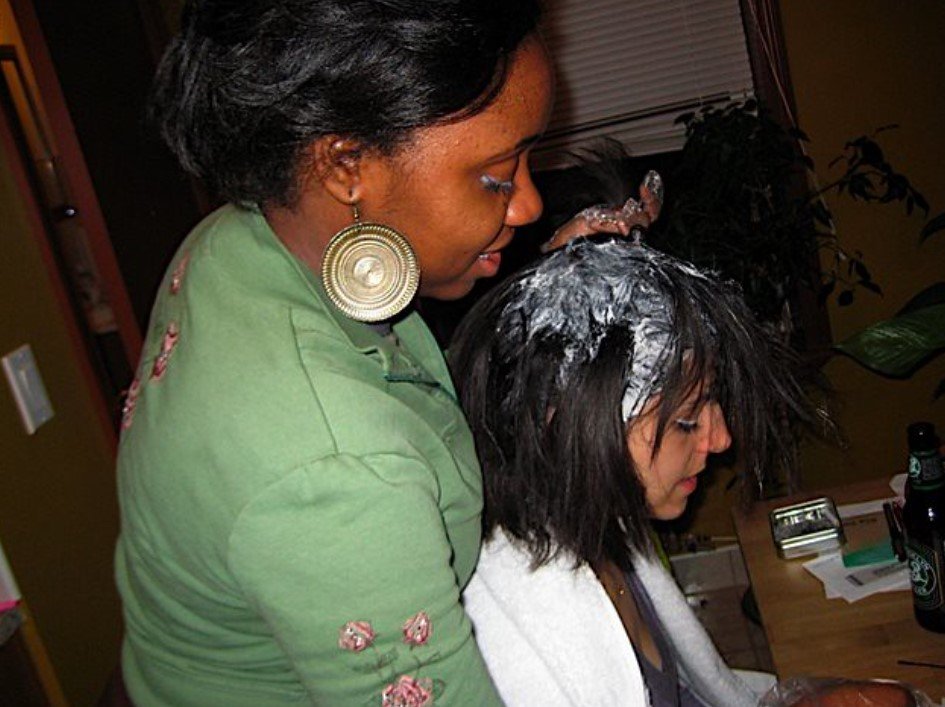The agency plans to propose a ban on formaldehyde in hair-straightening products, but experts say it is not enough
The Food and Drug Administration (FDA) announced that it would move to ban formaldehyde in hair-straightening products, more than a decade after researchers raised alarms about the health risks of the chemical. The agency plans to issue a proposed rule in April, which would prohibit hair-smoothing products that contain or release formaldehyde, a human carcinogen. The move comes amid growing concerns about the health effects of hair relaxers, products widely used by and heavily marketed to Black women. However, experts and advocates say the agency’s action is too little, too late, and does not address the other harmful ingredients in hair relaxers.

The use of hair relaxers is linked to various health problems, especially for Black women
The use of hair relaxers is linked to various health problems, such as skin irritation, respiratory issues, and hormone disruption. Studies have also found an association between hair relaxers and an increased risk of breast, ovarian, and uterine cancers, especially for Black women, who are more likely to use these products and have higher mortality rates from these cancers. According to a report by the Environmental Working Group, a nonprofit organization that advocates for safer cosmetics, hair relaxers contain more than 50 chemicals that are hazardous to human health, including formaldehyde, parabens, phthalates, and fragrance.
Formaldehyde is a colorless, flammable gas that is used as a preservative and a cross-linking agent in hair-straightening products. It can be added directly to the products, or released from other chemicals, such as methylene glycol or glyoxylic acid. Formaldehyde can cause skin burns, eye irritation, asthma, and allergic reactions. It can also damage the DNA and cause cancer, especially of the upper respiratory tract and the blood. In 2011, the National Toxicology Program, a federal agency that evaluates the safety of chemicals, classified formaldehyde as a known human carcinogen. The same year, the Environmental Working Group petitioned the FDA to ban formaldehyde in hair-straightening products, and sued the agency in 2016 for failing to respond.
The FDA’s proposed ban on formaldehyde is insufficient and overdue, critics say
The FDA’s proposed ban on formaldehyde is insufficient and overdue, critics say, as it does not address the other harmful ingredients in hair relaxers, nor the lack of regulation and oversight of the cosmetic industry. The FDA has limited authority and resources to regulate cosmetics and personal-care products, as it relies on voluntary reporting and compliance from the manufacturers. The agency does not require premarket approval, safety testing, or ingredient disclosure for these products, and can only take action after receiving evidence of harm or adulteration. The agency also does not have the power to recall unsafe products, and can only request or negotiate with the companies to do so.
Critics say the FDA’s action on formaldehyde is a result of pressure and litigation from the Environmental Working Group and other groups, rather than a proactive and precautionary approach. They also say the agency’s action is too slow and reactive, as it has taken more than 10 years to propose a ban on a chemical that has been widely recognized as a carcinogen. They also say the agency’s action is too narrow and incomplete, as it does not cover the other chemicals that may pose health risks in hair relaxers, such as parabens, phthalates, and fragrance. They also say the agency’s action is too weak and uncertain, as it is only a proposal that may take years to finalize and implement, and may face legal challenges and opposition from the industry.
The FDA’s action on formaldehyde highlights the need for more research and regulation on hair relaxers
The FDA’s action on formaldehyde highlights the need for more research and regulation on hair relaxers, as well as more awareness and education among the consumers and the providers. Experts and advocates say there is a lack of data and information on the safety and efficacy of hair relaxers, especially for Black women, who are underrepresented and underserved in the scientific and medical fields. They also say there is a lack of transparency and accountability in the cosmetic industry, which often uses misleading and deceptive marketing and labeling practices to sell their products. They also say there is a lack of alternatives and options for Black women, who face social and cultural pressures and expectations to conform to certain beauty standards and norms.
Experts and advocates call for more research and regulation on hair relaxers, such as:
- Conducting more studies and surveys on the health effects and outcomes of hair relaxers, especially for Black women, and involving them in the design and implementation of the research.
- Updating and strengthening the laws and policies that govern the cosmetic industry, such as the Personal Care Products Safety Act, which would give the FDA more authority and resources to regulate and review the safety of cosmetics and personal-care products.
- Requiring more testing and disclosure of the ingredients and hazards of hair relaxers, and enforcing stricter standards and limits for the use of chemicals, such as formaldehyde, parabens, phthalates, and fragrance.
- Developing and promoting more natural and organic alternatives and options for hair care and styling, and supporting the diversity and inclusivity of beauty and wellness.
